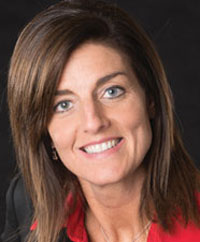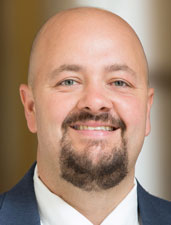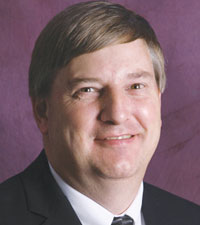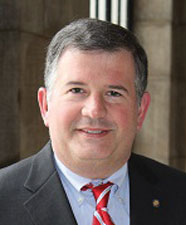Education is the foundation for all that we will achieve and the key to our future successes. What we learn from those who raise us to our first days in the classroom, on throughout K-12, and then all of our experiences and opportunities beyond, is what allows us to contribute to society in an intellectual and meaningful way along with enhancing our own lives overall. From earning a respectable income and enjoying all of the good things that life has to offer, to security and equality, to self-dependency and work ethic, to increased confidence and let’s not forget the economic growth of our great nation, for all of these reasons (and the list continues to grow!) education is at the center of progress and achieving all of our dreams.
At any age or stage in life you find yourself at, there are a wealth of opportunities to take advantage of in our community – it all depends on your areas of interest and career goals. Education is not static either; just as the more we learn the more we grow, our education systems and programs continue to adapt and advance. Cultivating talent is a major point of focus across all industries currently, so exposure to knowledge, targeted courses of study, and mentorship is crucial.
The University of Nebraska-Lincoln is one of the more prominent institutions here in Nebraska, with 150 academic majors and a wealth of incredible opportunities available to students who are pursuing a degree. Particularly for those interested in business-related fields, the College of Business Administration is undergoing a major expansion in order to accommodate the demand in that area.

Sheri Irwin-Gish
University of Nebraska-Lincoln
“We are building a new $84 million, 240,000-square-foot College of Business Administration, which is the largest academic building project in recent history at the University of Nebraska-Lincoln,” notes Sheri Irwin-Gish, Executive Director of Communications, Marketing & External Relations for the University of Nebraska-Lincoln College of Business Administration (cba.unl.edu/mba). “However, Dean Donde Plowman has always said it’s not only about building a building; she and all of us at CBA are building a college. That includes new programs, new faculty, new student services and new staff combined with innovative teaching, interactive learning and state-of-the-art technology for our students.
This is an exciting time for the College of Business Administration at UNL. Programs like supply chain and entrepreneurship are new programs that are expanding. We have a new director for the international business program who is bringing energy and many new ideas to that program. Our business minor for students not majoring in business has been growing rapidly as well.”
She adds, “The University of Nebraska-Lincoln College of Business Administration is offering Executive Education Certificate Programs this spring. These programs are non-credit executive education programs geared for working managers and professionals who want to develop new skills. The Certificate in Finance and Accounting program is set for April 6-8, and the Certificate in Sales Excellence program led by Dr. Ravi Sohi will follow on May 4-6. It’s important to note that we can also custom programs tailored to your specific business as well. Those interested can learn more or register at: http://cba.unl.edu/execed.”

Jonathon Moberly Concordia University
Concordia University, Nebraska is another exemplary institution with a growing MBA program. Jonathon Moberly, MBA Program Director at Concordia University, Nebraska (www.cune.edu) , explains the goal of their offerings as, “Assuring the students are confident that they are receiving a return on their time and financial investment for every course that they take in the program. This is accomplished by having a MBA Director’s Council that allows for student input on faculty hiring and curriculum, redesigning current courses and designing new courses, and seeking out instructors with diverse industry experience who have a wealth of practical knowledge to offer their students.
In order to build a tighter community among the MBA students and to provide them with a stronger foundation to make decisions in an organization that leads to its success, Concordia has implemented the following changes to its program structure over the past few years:
Together vs. Individual: Students now go through the program together as a group (a cohort) where they take the Core Courses for the program together for eight terms, split off into Concentration Courses for three terms, and then end the program together for the final term in a Strategic Management course. We are already seeing a difference in the relationships being built among the students in our cohorts.
Stronger Foundation for Decision-Making: Two courses that had been elective courses in previous years are now required courses within the Core that students take: Operations Management and Strategic Marketing. We want our Core to lay the foundation for decision-making in an organization. We felt that these two courses were the final pieces for that foundation. Our core consists of: Ethical and Legal Environment of Business; Accounting; Leadership & Organization Behavior; Corporate Finance; Human Resources; Operations Management; Managerial Economics; and Strategic Marketing.
Concentrations by Experts: We have designed the following eight concentrations that each consist of three courses based on insight we received from national and local experts in each industry: Human Resources; Leadership and Managing Teams Through Change; Marketing; Risk Management; Finance; Organization Development; Non-profit Management; and Aging Studies
Specifically regarding non-traditional students, our administration is always focused on what can be done to truly make the experience both rewarding and convenient for our students who have to juggle their families, careers and graduate work. As such, we’ve implemented a few key offerings:
*Restructuring the MBA program to a cohort model, which has proven to build a stronger community amongst the students. *Offering classes for each cohort on the same night throughout the program. *Providing students with their schedule for the whole program upon enrollment. *Registering the students for their classes. *Offering options for students to make up courses through both face-to-face and online methods in case they have to miss a course in the sequence but want to continue their forward progress with their degree.
We also believe strongly in past and present student engagement, so we offer special opportunities for involvement including our Alumni Mentor program, MBA Director’s Council, and Town Hall Meetings. Overall our program is focused on providing a foundation of knowledge through hands-on experience that in turn produces ethical leaders who can make immediate decisions for an organization that leads to its success.
The Concordia University Nebraska MBA Organization Development Clinic that began in May of 2015 remains one-of-a-kind for MBA programs in the Lincoln area, providing students with hands-on experiences working with real organizations that need help while receiving course credit.
The Organization Development Clinic strives to assist entrepreneurs, non-profit organizations, and existing small businesses whose values and missions align with Concordia University Nebraska. Concordia University Nebraska MBA students and faculty collaborate with these clients to assure a high-quality service is provided through a dynamic learning environment that promotes academic excellence and the integration of faith. Those who are interested in this opportunity are welcome to contact me directly at (402) 643-7430 or via email at jonathon.moberly@cune.edu.”
Along with a thriving business program, Southeast Community College offers a wide range when it comes to courses of study. The trades and health fields are major areas of focus, as it’s reported that there’s a lack of people who have the credentials and experience to perform many of the jobs that are currently available—and based upon demand these job opportunities are projected to grow in the future.

Stu Osterthun Southeast Community College
“Southeast Community College has an outstanding reputation for graduating students who are highly skilled in their chosen field,” says Stu Osterthun, Administrative Director of Public Information and Marketing at Southeast Community College (www.southeast.edu) . “Employers love SCC graduates. More than 100 employers from several states attend the Trades & Industry Career Fair each April on our Milford Campus, and several dozen attend the Ag Career Fair on our Beatrice Campus each October. Career fairs on our Lincoln Campus, of which there are many, also are well-attended by employers looking for skilled workers.
SCC offers something for everyone, whether it’s a new trade for the person right out of high school or the recently laid-off worker, to non-credit courses through our Continuing Education Division. SCC offers a number of programs unique to Nebraska and the entire region. Those include Nondestructive Testing Technology on the Milford Campus and Polysomnographic Technology that is online with a commitment to some lab work on the Lincoln Campus.
Students are able to attend school part-time in a number of SCC’s technical programs, allowing them to go at their own pace while maintaining full- or part-time employment. The College also offers numerous scholarships. Adult learners may think that the majority of scholarships are for students coming right out of high school. We have a specific scholarship application period for high school seniors, but many scholarships are open to anyone who meets the criteria.
As far as projections for the future, currently there are waiting lists of students who want to get into nursing and welding classes at SCC. Many of SCC’s 12 health sciences programs are experiencing high demand. Careers in health care fields have been strong for many years, so what we’re experiencing now is nothing new in that regard.
Additionally, Clark Enersen Partners of Lincoln is wrapping up a Facilities Master Plan for the College. Once completed, SCC’s Board of Governors will decide whether to add a question to the November ballot that would seek voter approval of the issuance of General Obligation Bonds to pay for new construction. The College is also studying the possibility of transitioning from a quarter system to a semester system.”
While our outstanding post-secondary institutions are always focused on improvement, providing the resources students need to be successful, and cultivating each wave of new professionals that enter the workforce, there are other resources in the community that serve a need in the classroom and come alongside to offer consultations and/or assistance in key areas.

John Wyvill
Nebraska Commission for the Deaf and Hard of Hearing
As one example, the Nebraska Commission for the Deaf and Hard of Hearing provides support in the educational setting. According to John Wyvill, Executive Director of the Nebraska Commission for the Deaf and Hard of Hearing (NCDHH, www.ncdhh.ne.gov ), “The support we provide is in two focus areas: 1. Advocating for appropriate and effective communication access for students; and 2. Ensuring educational institutions have the proper practices for the best educational outcomes for students who are deaf and hard of hearing. NCDHH provides resources and support including information about communication access in the classroom such as interpreting, captioning services and other assistive technology.
We feel that it is imperative for our agency to keep up with assistive technology that will benefit Nebraskans who are Deaf, Deaf-Blind and Hard of Hearing. In the age of technology, there are additional apps and equipment that can convert speech to text, as well as signaling devices in the home to make the house more accessible. There are new developments being made all the time, so awareness of what’s available and taking advantage of these offerings is key.
We have just created a webinar series for self-advocacy; in conjunction with our resources handbook: ‘Advocacy Handbook for Nebraskans who are Deaf, Deaf-Blind and Hard of Hearing.’ Each installment will feature various topics on how to best protect yourself. Topics include employment, education, housing, medical, and more.
There are several key issues in addressing the needs of youth and adults that all of us need to know about the best meet the educational needs for the student. It is extremely important that parents, students and educators work collaboratively to ensure a successful outcome for the student.
Early detection for hearing loss is very important; it is essential to access qualified professionals during the 0-5 year period for families. It is crucial to make resources available to students and parents, as many do not know what is out there for support. Particularly in the educational setting, awareness that social aspects have to be addressed and needs met to ensure social and emotional development in the educational process is paramount. However, the most important issue of all is to know all needs vary from student to student, and to work with what best fits that student.
We are here to provide advocacy and support, which includes developing a communication plan that works best for the individual in the educational setting. Adult learners who are looking to further their education can also reach out to us to take advantage of our free media resource library, including hundreds of books, DVDs and informational guides relating to Deaf culture, Hard of Hearing, parent resources, and sign language interpreting.
In meeting the educational needs of those students, as I touched on previously, it is not a one-size-fits-all scenario. The communication needs of students vary. If you are a parent, student or educator please don’t hesitate to contact us as we can be a resource and enhance the educational outcomes of the student.”
He also notes, “Currently, there is also a demand for community and educational interpreters in the workforce in Nebraska. Unfortunately we’re currently experiencing a critical shortage of qualified interpreters; school districts, video relay providers and others are constantly looking for interpreters to hire. If you are interested in becoming an interpreter, we can direct you towards the next steps to follow.”
Education is indeed an area deserving of the best, and although reflecting that with our actions is still a work in progress, it’s refreshing to know that there IS much progress being made. It is our fundamental job as members of the community to support efforts moving us forward in that area and to make sure the resources are readily available for students to take advantage of. In our local community, and statewide, we are lucky to have institutions, foundations and systems that greatly benefit the thinkers and doers of our generation who will have powerful influence on our society as a whole.

